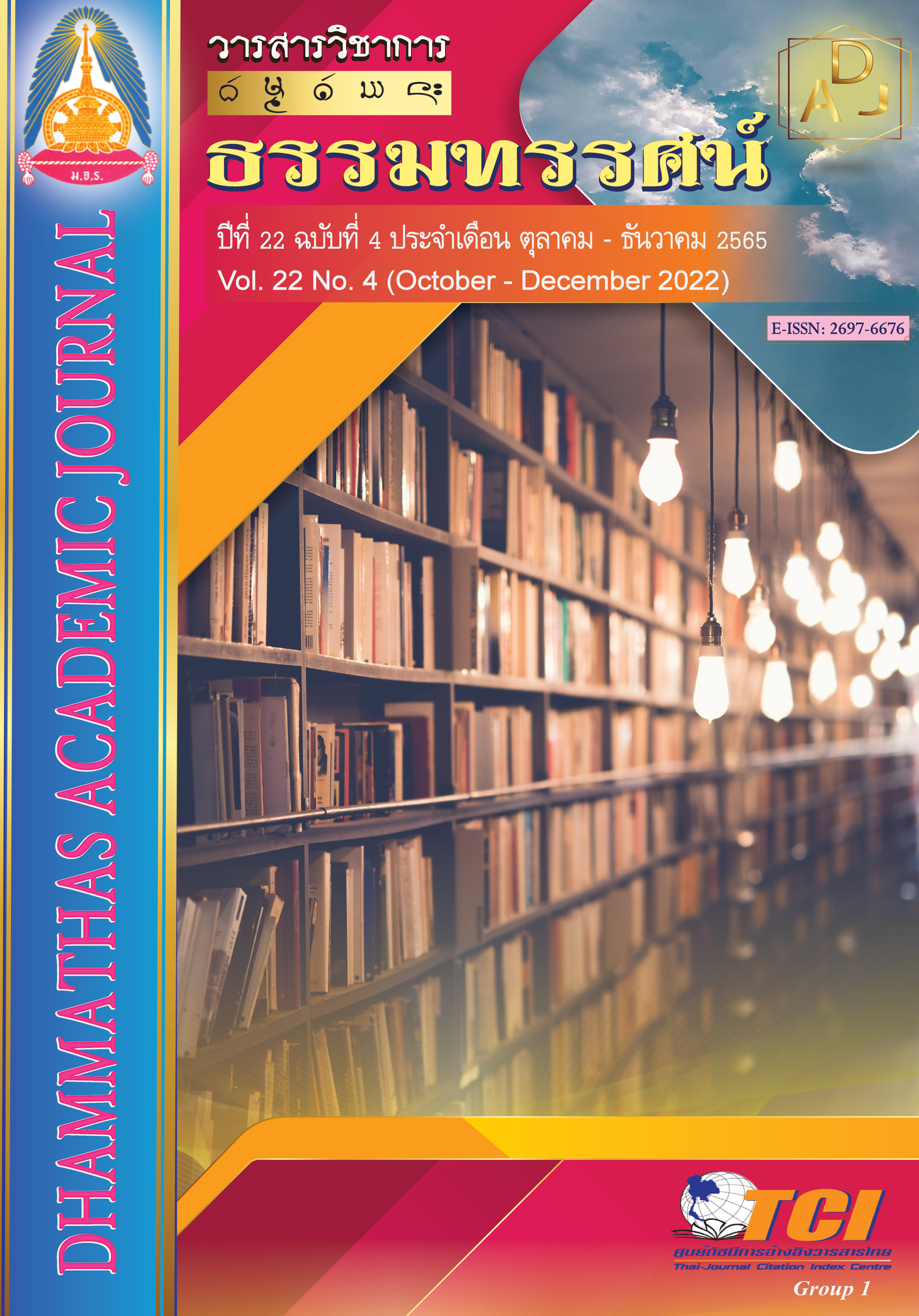Factors Affecting Self-discipline of Students at Ragamangala University of Technology Lanna Chiangmai
Main Article Content
Abstract
The research aims 1) to study the factors affecting the students’ self-discipline of Rajamangala University of Technology Lanna, Chiang Mai, 2) to study the level of students’ self-discipline Rajamangala University of Technology Lanna Chiang Mai and 3) to compare the factors affecting the students’ self-discipline and classified factors to self-discipline among students, gender, faculty, year and family status. The samplings were 384 students from Ragamangala University of Technology Lanna Chiangmai fiscal year 2019. The samplings were selected by stratified sampling. Moreover, the data collecting instruments were a checklist and 5 level Likert scale. The research instruments were qualified from content validity, Index of Item Objective Congruence (IOC) with values between 0.66-1.00 and Cronbach’s Alpha Coefficient. The results of reliability were 0.84, 0.82. The statistical data analysis was percentage, average, standard deviation (S.D.), T-test, and One-way ANOVA or F-test, and LSD.
The results illustrated that:
1. Students’ total self-discipline was the relationship among parents and students, the relationship between students and friends, and the relationship between teachers and students was at a high level.
2. The level of self-discipline of the students overall was at a high level.
3. The comparison of the difference between the average scores of factors affecting the students' self-discipline. The results found that the first-year students had average scores for the factors affecting the students' self-discipline; the relationship between teachers and students were different from the 2nd year, 3rd year and 4th year with a statistical significance at 0.05.
Article Details

This work is licensed under a Creative Commons Attribution-NonCommercial-NoDerivatives 4.0 International License.
เพื่อให้เป็นไปตามกฎหมายลิขสิทธิ์ ผู้นิพนธ์ทุกท่านต้องลงลายมือชื่อในแบบฟอร์มใบมอบลิขสิทธิ์บทความ ให้แก่วารสารฯ พร้อมกับบทความต้นฉบับที่ได้แก้ไขครั้งสุดท้าย นอกจากนี้ ผู้นิพนธ์ทุกท่านต้องยืนยันว่าบทความ ต้นฉบับที่ส่งมาตีพิมพ์นั้น ได้ส่งมาตีพิมพ์เฉพาะในวารสาร วิชาการธรรม ทรรศน์ เพียงแห่งเดียวเท่านั้น หากมีการใช้ ภาพหรือตารางของผู้นิพนธ์อื่นที่ปรากฏในสิ่งตีพิมพ์อื่นมาแล้ว ผู้นิพนธ์ต้องขออนุญาตเจ้าของลิขสิทธิ์ก่อน พร้อมทั้ง แสดงหนังสือที่ได้รับการยินยอมต่อบรรณาธิการ ก่อนที่บทความจะได้รับการตีพิมพ์References
กาญจนา ร้อยนาค, ดวงแข พิทักษ์สิน และพิชฌาย์ วีร์สินสวัสดิ์. (2554). ความมีวินัยในตนเองของนักศึกษาพยาบาลศาสตร์ วิทยาลัยพยาบาลบรมราชชนนี ราชบุรี. รายงานสืบเนื่องการประชุมทางวิชาการของมหาวิทยาลัยเกษตรศาสตร์ ครั้งที่ 49: ศึกษาศาสตร์, 4 กุมภาพันธ์ 2554 (หน้า 123-128). กรุงเทพฯ: มหาวิทยาลัยเกษตรศาสตร์.
กุหลาบ อินทร์สา, ประเสริฐ เรือนนะการ และเสนอ ภิรมจิตรผ่อง. (2559). ปัจจัยที่ส่งผลต่อความมีระเบียบวินัยของนักเรียนมัธยมศึกษาปีที่ 3 สังกัดสำนักงานเขตพื้นที่การศึกษาประถมศึกษาอุดรธานี. วารสารการวัดผลการศึกษา มหาวิทยาลัยมหาสารคาม, 22(ฉบับพิเศษ), 39-48.
ขจิตตา นพโสภณ. (2562). ความมีวินัยในตนเองของนักเรียน โรงเรียนบ้านหนองขาหยั่ง สังกัดสำนักงานเขตพื้นที่การศึกษาประถมศึกษาฉะเชิงเทรา เขต 2. (วิทยานิพนธ์การศึกษามหาบัณฑิต). ชลบุรี: มหาวิทยาลัยบูรพา.
ดวงเดือน พันธุมนาวิน. (2529). เอกสารประกอบการฝึกอบรมการวิจัยขั้นสูงทางพฤติกรรมศาสตร์. กรุงเทพฯ: สถาบันวิจัยพฤติกรรมศาสตร์ มหาวิทยาลัยศรีนครินทรวิโรฒ.
ทัศนียา แสนทิพย์. (2559). การศึกษาความมีวินัยในตนเองของนักเรียนโรงเรียนนิคมสร้างตนเองจังหวัดระยอง 4 สังกัดสำนักงานเขตพื้นที่การศึกษาประถมศึกษาระยอง เขต 1. (วิทยานิพนธ์การศึกษามหาบัณฑิต). ชลบุรี: มหาวิทยาลัยบูรพา.
บุญชม ศรีสะอาด. (2555). วินัยในตนเองและงานวิจัยที่เกี่ยวข้อง. วารสารการวัดผลการศึกษา, 17(1), 3-15.
เบญญาภา หลวงราช. (2560). ปัจจัยที่ส่งผลต่อความมีวินัยในตนเองของนักเรียนโรงเรียนขยายโอกาสทางการศึกษา จังหวัดพระนครศรีอยุธยา. (วิทยานิพนธ์ศึกษาศาสตรมหาบัณฑิต). กรุงเทพฯ: มหาวิทยาลัยศิลปากร.
สิริกร สินสม. (2558). ปัจจัยที่มีผลต่อความมีวินัยในตนเองของนักเรียนระดับชั้นมัธยมศึกษาตอนต้น โรงเรียนมัธยมศึกษา จังหวัดนนทบุรี. (วิทยานิพนธ์ศึกษาศาสตรมหาบัณฑิต). กรุงเทพฯ: วิทยาลัยครุศาสตร์ มหาวิทยาลัยธุรกิจบัณฑิต.
อุไรวรรณ สวัสดิ์. (2551). ปัจจัยที่ส่งผลต่อความไม่มีวินัยในตนเองของนักเรียนช่วงชั้นที่ 3 โรงเรียนสารวิทยา เขตจตุจักร กรุงเทพมหานคร. (ปริญญานิพนธ์การศึกษามหาบัณฑิต). กรุงเทพฯ: มหาวิทยาลัยศรีนครินทรวิโรฒ.
Ausubel, David P. (1968). Education Psychology: A Cognitive: A Cognitive View. New York: Holt Richart and Winston.

